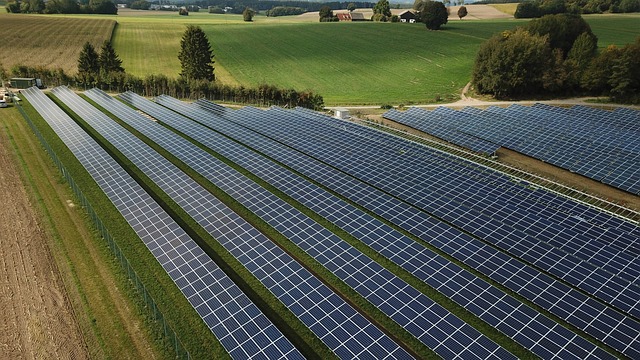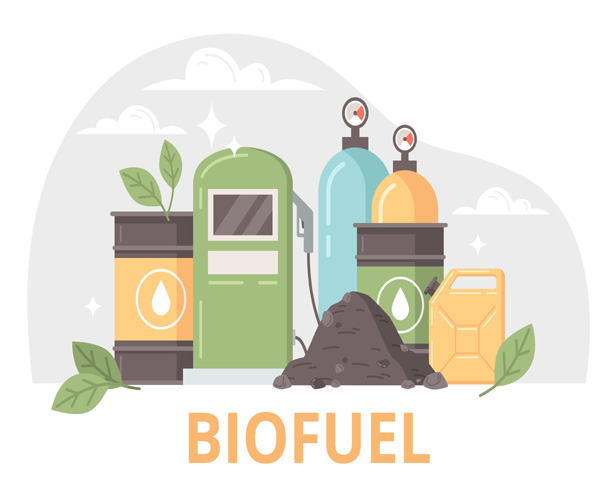The Intergovernmental Panel on Climate Change (IPCC) in its sixth assessment report (AR6) predicts major changes in the environment due to climate change. These include heatwaves, irregular rainfall, and extreme weather events. These changes are attributed to the rising overall temperatures and oceans which causes changes in wind, heat, and moisture circulation patterns.
.png)
More than 12 states in India are pushing for electric vehicles (EVs) including Maharashtra, Andhra Pradesh, Bihar, Karnataka, Punjab, Tamil Nadu, etc. Though in some of the states the bill is in the process of approval, most have already approved it. Recently Uttar Pradesh has made a push towards bringing EVs into mainstream transportation.
.png)
Pineapple agroforestry, instead of Jhum cultivation can be a sustainable alternative in northeast India, says a study published in the Journal of Environmental Management. Jhum cultivation or swidden agriculture practiced in this region has become unsustainable causing soil infertility, erosion, and low agronomic productivity.
.png)
Recent years, especially the last decade has been marked with extreme weather phenomenon. This is more frequent in the Himalayan regions of Jammu & Kashmir, Uttarakhand, Himachal Pradesh, and some parts of northeast India. While most of these events are a result of changing climate, some of them are attributed to local weather phenomenon and other human factors like tunneling, unplanned road cutting, stone mining, deforestation, and construction.

A first-of-its-kind study examines the economic and technical viability of 100% renewable energy systems for a global megacity like Delhi inside the northern Indian grid region. Delhi should start moving away from fossil fuels by the year 2050, a recent article in the journal Renewable Energy states.

Kerala institutions are setting the standard for producing electricity from renewable sources and selling the extra to the Kerala State Electricity Board (KSEB) Limited. Every month, one of the colleges sends the KSEB grid about 5,000 units of electricity.

Shifting away from fossil fuels is leading to a transformation in home heating systems, as the UK aims to eliminate gas boilers by 2035 to reduce carbon emissions. The main contender for replacing gas boilers is the heat pump due to its high efficiency, converting one unit of energy into about three units of heat. However, the transition is not straightforward. Heat pumps operate at lower water temperatures, necessitating larger radiators and better insulation, which can increase costs. While heat pumps are more energy-efficient, electricity costs about three times more than gas, partly negating the efficiency gains.

In Ghaziabad, E[co]work has developed a revolutionary concept: a 21,000-square-foot co-working facility intended specifically for e-waste dismantlers and recyclers. The major goal is to provide order and formality to India's e-waste management business. This unique workspace, located on Meerut Road, serves as a nexus for microentrepreneurs engaging in e-waste activities.

Total Green Recycling, the region's largest e-waste recycler, is expanding its capabilities in advance of a statewide restriction on depositing electronic debris (e-waste) in landfills beginning in 2024.

According to the 14th National Electricity Plan (NEP), India intends to considerably enhance its renewable energy capacity, with the objective of more than tripling it by 2030.

Andhra Pradesh Chief Minister YS Jagan Mohan Reddy pushed the state's renewable energy agenda forward by launching 12 new APTRANSCO substations and laying the groundwork for 16 more around the state.

Infinium and Breakthrough Energy Catalyst are spending $75 million on Project Roadrunner, a futuristic project that will convert waste carbon dioxide and renewable energy into low-carbon electrofuels.

The Adani Group, run by Indian businessman Gautam Adani, has presented plans for the world's largest renewable energy complex, to be located in the enormous expanse of northwestern India's Rann desert.

India is making great progress in the renewable energy sector, with the goal of reaching 500 GW of renewable energy capacity by 2030.

Uttar Pradesh is launching a green energy strategy with a 1 lakh crore investment for approximately 125 clean energy projects.

Revolutionary megaprojects, representing the state of Gujarat's high future goals, are driving the state's outstanding march towards development. Among these, the Mumbai-Ahmedabad bullet train demonstrates India's commitment to high-speed rail travel.

Firefly Green Fuels, a UK-based startup, created a unique type of jet fuel produced entirely of human waste, transforming sewage into fossil-free fuel.

Renewable energy has emerged as the most efficient and environment-friendly option to address energy security concerns and meet future global energy demands.

Prime Minister Narendra Modi inaugurated India Energy Week 2024 in Goa, a major event that brings together the entire energy value chain to accomplish India's energy transition goals.

 Technology is a useful servant, but a dangerous master, it was rightly said. Electronic devices have grown into an inevitable part of our daily lives.
Technology is a useful servant, but a dangerous master, it was rightly said. Electronic devices have grown into an inevitable part of our daily lives.


